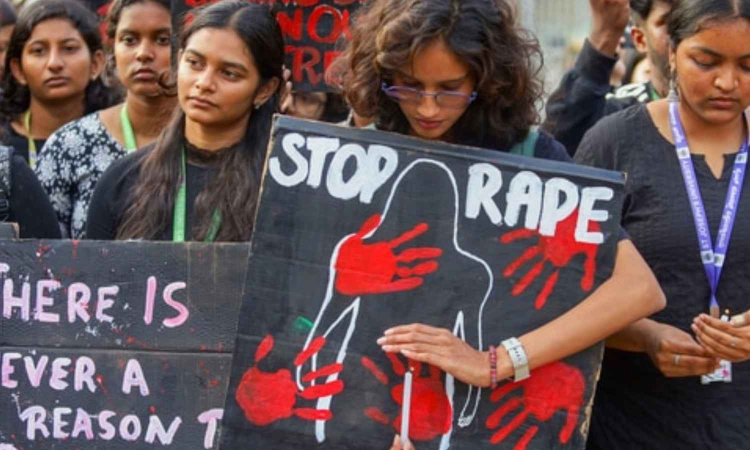Editorial: The uncle-type response to rape
When spouted by senior functionaries vested with secular authority, they shift the glare of inquiry from the criminal to the victim.

Representative Image (PTI)
India’s sordid history of crime against women is littered with the thoughtless remarks of men in positions of authority, sometimes women, even. Couched as counsel, victim-blaming is always the first diagnosis offered when an incident of rape or molestation occurs. Not long after such a crime is reported, a minister or police officer or uncle comes along to donate his view, whether or not it is his official remit. Sensitising these factotums of patriarchy, or mandating them to shut up, may be the first battle that needs to be won if we are seriously to deal with this disgrace.
Take the case of the two Australian cricketers who were groped by an assailant in Indore last Sunday (Oct. 23) while walking to a café in broad daylight. Proffering his take on a matter that’s not his mandate, Madhya Pradesh parliamentary affairs minister Kailash Vijayargiya began promisingly. “Look, there has been a lapse,” he said, but followed it up with garden-variety victim-blaming: “The players left their hotel without telling anyone; they didn't even tell their coach. This is a mistake from their side, too. Now they will learn from this.”
Less than a fortnight earlier, Mamata Banerjee offered seemingly matronly but distinctly patronly advice to a student who was sexually assaulted in Durgapur in Paschim Bardhaman district. “Especially girl children at night time, they should not be allowed to come outside,” said the woman chief minister of Bengal.
Of course, the idea is for women to ‘learn’ from this, to stay within the boundaries of decent clothes and docile behaviour, and to ask for permission for such dangerous activities as having a cup of tea or having a meal with a friend in a restaurant. These are shape-shifting boundaries, drawn always on the other side of whatever women do. ‘What on earth she was doing there’ is the common question asked, be it of Nirbhaya, out with a boyfriend to see a movie, or of that tragic doctor of RG Kar Medical College Hospital, assaulted in the library of her place of work.
Apart from doling out avuncular instruction to women, uncle-type authoritarians also seek to screen men from blame, insidiously if not brazenly. Back in 2014, the late Mulayam Singh Yadav explained the rape of a woman in Mumbai with some familiar sociology: “Boys will be boys,” he said, “they make mistakes.” Then there was the Chhattisgarh home minister named Ramsevak Paikra, who once quoth that rapes “do not happen on purpose”, they can be “accidental” too. Madhya Pradesh used to have a chief minister named Babulal Gaur, who specialised in such wisdom. Rapes were in his moral order “sometimes right, sometimes wrong”; when the latter, it was always because “men sometimes lose their mental balance.”
Uncle responses to rape are deeply damaging. When spouted by senior functionaries vested with secular authority, they shift the glare of inquiry from the criminal to the victim. Equally insidiously, they also provide a cue to conservative voices in society to commandeer the outrage and redirect it away from an examination of institutional failure. Hijacked by conservatives, this outrage then turns into theatre, designed to cement norms hostile to women and justify extra-judicial measures to satisfy the bloodlust of the mob out there.



